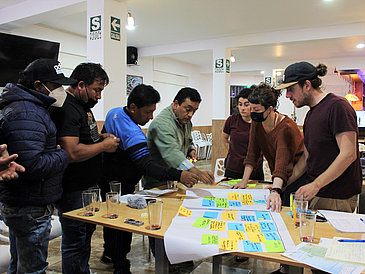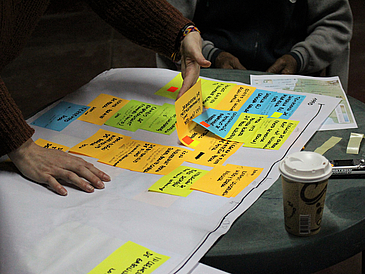Interest in marine-related economic activities has increased dramatically in recent years. The ocean has become the focus of development agendas for national governments and corporate actors, who see it as the source of multiple opportunities for economic growth.
The “Blue Economy” does not exist in a vacuum
Economic initiatives, often framed within discourses of “Blue economy”, do not exist in a vacuum: they relate in many ways to previously existing practices and dynamics of marine and coastal extraction, and the actors that carry these out, in some cases producing or furthering the uneven distribution of benefits of natural resource extractivism, and the social and environmental injustices that occur as a result.
Local and globalized needs overlap in coastal Peru
Coastal Peru is a vast site where local and globalized needs overlap, and where two artec doctoral candidates, Sara Doolittle Llanos and María Garteizgogeascoa, are currently carrying out their research, under Prof. Michael Flitner.
Artisanal fishers offer first-hand insights into social and ecological tipping points
As a part of the Humboldt Tipping Project, they teamed up with scientists from the ZMT Leibniz Center for Tropical Marine Research, Bremen, Germany, and GRADE Grupo de Análisis para el Desarrollo, Lima, Peru, to conduct socioecological timeline workshops with artisanal fishers from the bays of Sechura and Independencia. Through these first-hand accounts, fishers and scientists reconstructed the most transformative events in the bays in some of the artisanal fisheries and scallop mariculture. This continues the project’s trajectory of investigating tipping points within the social and ecological landscapes in coastal Peru. After all the information is analyzed, it will be returned to the stakeholders in a preferred format and contribute to the elaboration of a policy brief for decision makers.

![[Translate to English:] Zur artec Startseite](/fileadmin/user_upload/sites/artec/Bilder/Logo/artecWortmarke200px.gif)

